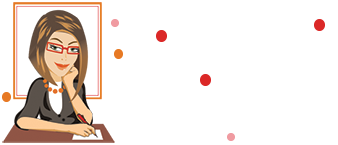4 Powerful Ways To Figure Out What You Should Be Doing With Your Career In 2016

Part of the series “Living and Working Better”
As a career success coach, writer, and researcher, I’ve had the opportunity to observe key trends among thousands of professionals around the world, particularly about how they get stuck and stay stuck in careers they dislike, and how they effectively change directions to a new path that’s rewarding and successful.
One challenge I hear literally every day goes something like this:
“Kathy, I don’t like my career and I know that I want to change it, but I simply can’t figure out what to do next. What will make me happy, give me the money I need and want, and offer more meaning and purpose. And what do I need to change?
If you’ve read anything of work or background, you know that I lived the pain of this experience – being stuck for years in a corporate identity that simply didn’t fit me and that was filled with toxicity. After a brutal layoff in the days following 9/11, I finally decided I had to reclaim my life, but to do it, I wanted to learn more about how women overcome professional crisis. I conducted my own yearlong research study and the findings were so powerful and helpful to me, I wrote a book about their stories and strategies (for more on that, seeBreakdown, Breakthrough). After 10 years of career coaching now, I’ve seen that there are four critical steps that help people overcome their internal and external career challenges, and transform their lives.
The four key steps to transforming your career to something you’ll love are:
1. Dig deep to figure out what you want to keep or leave behind
Just today in a call in my Amazing Career Project course, a participant asked for help determining if it’s her career that’s making her miserable or the environment (employer). She just couldn’t identify what needed to change, and she’s not alone.
Here’s what to do: Conduct a thorough assessment of what you would like to preserve and maintain in your current career and job function, and what needs to be shed. To learn more about your current line of work, think about this: If you were to interview 100 people in your job, what elements would be consistent – what tasks, functions and outcomes do the majority of people in your career engage in, regardless of the employer or environment? What challenges and rewards are consistent among these professionals, regardless of where they work?
If you have no clue, go out and starting connecting with and talking to people in your line of work and then ask yourself:
“Are these tasks and functions in my job (that are consistent across employers) enjoyable and rewarding to me?” If not, it’s a sign that your career has to change.
As an example, I spent my first professional years as a copywriter in publishing. Truthfully, I always liked to write but not as a copywriter selling books and journals. I realized years later that I don’t like writing for marketing purposes, especially pushing other people’s products. I like writing that’s more about ideas, trends, society, and solutions, rather than promotion. Writing, then, is a rewarding endeavor for me only when it’s for a purpose I care about.
On the other hand, if it’s the job environment that’s killing you, tease out exactly what you dislike about it. (Here’s why most people hate their jobs.) Is it the leadership, the people, the focus, the crushing schedule, the values of the organization, the outcomes they care about, the way they manage, etc.? Brainstorm a list of other organizations you might want to work for who have traits you admire, and start your interviewing process this month. Tailor your resume to what these employers need and want, and speak powerfully about your capabilities and accomplishments. Trust me, your eyes will be opened throughout this process.
2. Uncover the hidden beliefs, mindsets and assumptions that keep your feet planted in stone.
Everyone on the planet carries with them thousands of embedded beliefs, mindsets and assumptions – about themselves, the world, work, and the people around them. And people who are stuck have often made some costly or rigid assumptions about what they’re capable of creating , their worthiness, and what they need to be happy.
The most damaging belief is this: I can’t get what I want. Clients by the hundreds have shared with me that they don’t feel capable of making the changes they dream of, but from my perspective as a researcher, I know they are far more capable and competent than they believe.
The assumptions (most often unconscious) that keep people trapped are these:
– I’ve been at this so long, I can’t change
– I need to earn $XXX to live the life I want
– My marriage or family won’t survive my making this change
– I’ll be too old by the time I make this change
– I don’t have what he/she has
– I’m unskilled, uneducated or out of touch with current trends
– I have nothing important to offer
– I can’t compete today
– There’s nothing geographically near me that I’d want
– I’m too exhausted and burnt out to try anything different
– I’m really down and sad that what I have isn’t working out (and don’t really believe the next thing will be better)
Sound familiar?
If you have beliefs and mindsets that hold you back, you have to take one key step: revise what you think and believe to something that will serve you better. You might need outside help for that, but it’s about understanding that your beliefs are not set in stone, (they often came from someone else), and you can change them. And when you shift what you believe to something more positive and life-affirming, all is transformed.
Go out and talk to some career changers, for instance, and ask yourself: “Are these folks who’ve reinvented their careers really so different from me, or can I do this?”
3. Gain clarity about the best path for you
Ask yourself these questions and conduct some research to answer:
- What are my passions, and which of these make sense as a livelihood and which are better as hobbies?
- Based on my authentic passions, talents, skills and values, what are the best careers for me?
- What are all the factors I also need to address in planning my next direction (money, timing, well-being, geography, family needs, support, enjoyment, health, etc.)
- Am I making any erroneous assumptions about myself and my life that I need to rethink?
- Do I know what it takes to be successful in this new direction, and am I committed to it 100%?
- Do I really want to start my own business, or am I just running away from something?
- How will I fund my career change or transition?
- Where will I find the ongoing support I need?
4. Now…tie it all together
After you’ve done the work of identifying exactly what you want to change, and revising your mindset that it’s possible, it’s time to connect the dots (listen to the amazing Steve Jobs TED talk) about how to make sense of the key themes of your life, and honor them.
Explore a new path that will bring forward what matters to you, and leverage what you’re great at, within an environment that brings out the best in you.
As one who has interviewed hundreds of career changers, I know that what’s required are the 6 C’s:
Clarity…to understand what needs to change, specifically
Confidence… to believe in yourself that you can do it
Courage… to start engaging in the scary work of change
Commitment…to keep going through the challenges and do what’s required
Connection…to build a powerful support network and community who can help
A powerful change plan…to engage in the right steps that will bring you to a more satisfying outcome
Don’t make the same huge blunders that so many career changers make. Do the inner and outer work required to 1) discover who you are and what really matters to you, 2) overcome the obstacles in the way of your success, and 3) identify and “try on” the paths that will bring you the happiness and success you long for.
Finally, understand and believe that you’re capable of reaching your highest potential in this life.
For more career change support, take my free Career Path Self-Assessment, listen to weekly podcast Best Work/Best Life, and join me in the Amazing Career Project.
Top 10 Career Lessons From Powerful Women
This article was written by Kathy Caprino from Forbes and was legally licensed through the NewsCred publisher network.
![]()
